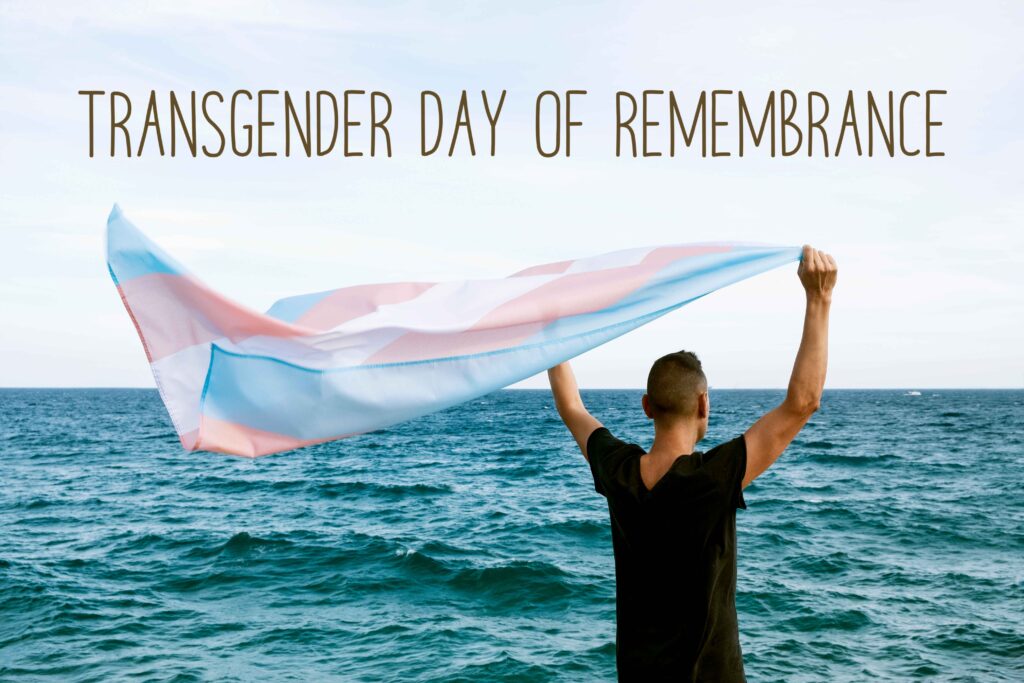Anti-trans bills are on the rise. In 2024, 43 states introduced 664 bills, marking the fifth consecutive record-breaking year for this type of legislation in the United States. These bills aim to restrict transgender people’s access to healthcare, education, and basic legal rights. More than that, they represent a targeted effort to undermine the rights of the trans community.
Adding to this hostile climate are the recent election results and the incoming administration’s promises to reverse Title IX protections for trans students. Plans to block Medicare and Medicaid coverage for gender-affirming care further contribute to an atmosphere of fear and uncertainty.
In light of this rising anti-trans sentiment, this year’s Transgender Day of Remembrance (TDoR) is more important than ever. Observed on November 20, TDoR honors those lost to anti-transgender violence and stands as a powerful reminder of the urgent need for visibility, support, and advocacy against hate and discrimination.
What Is Transgender Day of Remembrance?
Observed on November 20, Transgender Day of Remembrance (TDoR) honors transgender, non-binary, and gender non-conforming people who have lost their lives to anti-transgender violence.
TDoR follows Transgender Awareness Week (November 13-19), a time during which communities come together to raise awareness of the challenges transgender people face. While TDoR is primarily a time for mourning, reflection, and remembrance, it also serves as a call for ongoing support and unity in the fight for transgender rights and safety.
History of Transgender Day of Remembrance
Transgender Day of Remembrance (TDoR) began in 1999 as a vigil organized by transgender advocates Gwendolyn Ann Smith, Nancy Nangeroni, and Jahaira DeAlto. They created the event to honor the memories of Chanelle Pickett and Rita Hester, two Black transgender women killed in Massachusetts in 1995 and 1998, respectively.
The first official TDoR took place in November 1999 in Boston and San Francisco. Observed each year on November 20 — the anniversary of Chanelle Pickett’s murder — the day has grown into an annual tradition in over 200 cities across 21 countries.
How to Commemorate Transgender Day of Remembrance
Attend or organize a vigil: Vigils are one of the most common ways to honor those lost to anti-transgender violence. They’re typically hosted by local LGBTQ organizations and take place in community centers, parks, and places of worship.
Participate in other TDoR events: Beyond vigils, communities hold events such as church services, marches, art exhibitions, food drives, and film screenings to mark TDoR.
Educate yourself: Take time to learn about transgender issues, respectful language, and the importance of honoring gender identity. Our article about gender pronouns is a great place to start.
Share stories: Sharing personal stories from transgender people can be a powerful way to highlight the challenges they face and promote empathy and acceptance.
Advocate for change: Support legislation that protects transgender rights. You can keep track of pending anti-LGBTQ bills on the American Civil Liberties Union’s (ACLU) website.
Amplify voices: Use social media to raise awareness about TDoR and share messages from transgender activists and advocates. Here are some hashtags to use:
#TransgenderDayOfRemembrance
#TDOR
#TransRightsAreHumanRights
#TransVisibility
#StopTransphobia
Trans Organizations to Support
Another meaningful way to support trans rights is by volunteering with or donating to transgender organizations. Here are a few examples:
- Anti-Violence Project
- National Center for Transgender Equality
- Sylvia Rivera Law Project
- Trans Women of Color Collective
- Transgender Law Center
- TransJustice at the Audre Lorde Project
Transgender Day of Remembrance in Los Angeles
The Los Angeles LGBT Center is holding a free TDoR event on November 20, 2024 from 6:30 pm to 9:30 pm at The Village at Ed Gould Plaza (1125 N. McCadden Place Los Angeles, CA 90038).
From the website:
“This in-person event will include TGI community speakers, performances by Street Poets Inc. & Trans Chorus of Los Angeles. The evening will conclude with us paying tribute to those who are no longer with us. Let’s come together in solidarity and work towards a more inclusive and accepting society. Together, we can make a difference.”
How La Fuente Supports the Trans Community
Driven by challenges like discrimination, poverty, unemployment, and violence, trans people face some of the highest rates of substance misuse.
Unfortunately, most rehab programs fail to meet the needs of trans clients. Many transgender clients report feeling disconnected from providers, and some even leave treatment prematurely due to stigma, ignorance, or outright harassment.
In honor of Transgender Day of Remembrance (TDoR), La Fuente reaffirms its commitment to creating a safe and respectful space where trans individuals can find healing and support.
Our trans-affirmative practices include:
- Diverse staff: Our team is made up of LGBTQ staff members with the training and lived experience needed to provide affirming, compassionate care for trans clients.
- Inclusive practices: Staff members share their pronouns and encourage clients to do the same, creating an environment of emotional safety and respect.
- Affirming intake forms: Our paperwork allows clients to specify preferred names, pronouns, and gender identities.
- Representative marketing materials: Our blog and social media include diverse gender identities and orientations whenever possible.
- Access to gender-affirming medications: We make hormone therapy available for clients who need it.
- Gender-neutral bathrooms: Our facility includes unisex bathrooms, offering a safe and comfortable space for all clients.
- Gender-affirming living quarters: Trans clients can select living quarters that align with their gender identity, promoting comfort and inclusivity.




